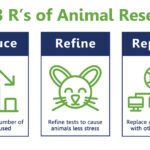Abandoning a pet is akin to severing a bond crafted through trust and dependence, leaving a void filled with confusion and heartache. The act of relinquishing an animal that was once a cherished companion is not merely a decision made in haste; rather, it often emerges from an intricate web of circumstances that can be tragic, perplexing, and sometimes profoundly humanistic. Understanding why some people abandon their pets requires delving deep into the interplay of societal factors, emotional struggles, and unforeseen life changes.
At the heart of abandonment lies a multifaceted conundrum. One must consider the landscape of modern society where the allure of instant gratification meets the stark reality of long-term commitments. In an age where consumerism reigns supreme, fleeting desires often overshadow thoughtfulness. A companion animal, which initially ignites joy and excitement, can quickly morph into a perceived burden if expectations collide with the unyielding demands of real life. The anticipation of cuddly moments may unravel into late-night barking, unforeseen vet bills, and the relentless upkeep of daily care.
A poignant contributor to this phenomenon is the circumstance of economic instability. Financial difficulties often catalyze decisions that one might otherwise find unthinkable. For many, pets symbolize a responsibility that financial strain can render untenable. Imagine a family facing a sudden job loss; the resulting pressure can lead to agonizing choices. In such instances, the beloved dog may tragically become an expendable luxury rather than a treasured member of the household. Economic abandonment can manifest as a harsh response to an unforgiving reality, transforming once joyful pawprints into a bittersweet memory.
The emotional aspect of pet ownership further complicates the narrative. While the initial stages of bringing a pet into the home may be marked by exuberance and excitement, the evolution of relationships involves the potential for disappointment and disillusionment. Many individuals harbor an idealized view of pet ownership, yet fail to grasp the emotional labor required to nurture such bonds. The arrival of a pet often coincides with life changes—new jobs, relationships, or family expansions—that can dramatically alter one’s capacity to provide care. The illusion of companionship can fracture when faced with the day-to-day realities of pet ownership.
Moreover, the stigmatization of mental health issues plays a significant role in the abandonment of pets. Individuals grappling with depression or anxiety may find themselves unable to fulfill the responsibilities that come with pet ownership. Pets offer unconditional love, yet they also require a level of stability that may be hard to muster in times of emotional turmoil. In such cases, the act of leaving a pet behind is not simply a decision of convenience but rather a tragic acceptance of one’s limitations. The cycle of abandonment becomes evident as each neglected animal becomes a reflection of human fragility.
Then there is the insidious issue of impulsivity, where the decision to adopt is made on a whim. For many, the excitement of acquiring a pet can obscure the long-term commitment involved. This phenomenon often manifests during holidays or special occasions when adopting a pet becomes an alluring gift idea. Yet, the reality of these momentary decisions can result in heart-wrenching consequences when the novelty fades, and the responsibilities commence. Each abandoned animal thus becomes a testament to our fleeting attention spans and a misunderstanding of love’s enduring nature.
Additionally, there are cases where abandonment stems from inappropriate or unplanned breeding. In a society teeming with stray animals, the failure to spay or neuter can lead to an overwhelming influx of unwanted litters. Often, the resultant puppies or kittens are seen as burdens rather than beings of potential. In such scenarios, it is not unusual for individuals to abandon the offspring, with an emotional detachment that mirrors societal attitudes towards life and responsibility.
Moreover, community attitudes and societal norms can perpetuate the cycle of abandonment. Many neighborhoods lack supportive structures for pet owners facing challenges, leading to a sense of isolation. The absence of accessible resources, such as affordable veterinary care or pet food assistance, can place individuals in dire straits. A societal responsibility emerges here; fostering supportive environments that emphasize pet ownership as a shared communal obligation can curtail the trend of abandonment.
The role of education cannot be overstated in mitigating the galloping issue of pet abandonment. Raising awareness about the realities of pet ownership, promoting responsible breeding practices, and encouraging spay and neuter protocols are vital steps toward fostering a culture of accountability. Educational campaigns that highlight the emotional and economic aspects of pet care can serve as a bulwark against impulsive adoptions and subsequent disillusionment.
Ultimately, understanding the reasons behind pet abandonment demands a comprehensive approach that intertwines emotional, social, and economic threads. Compassionate intervention—be it through community resources, mental health support, or educational outreach—can serve to alleviate the burden of ownership and, in turn, reduce the instances of heartbreak that follow abandonment. Each abandoned pet is a narrative shrouded in silence, an overlooked chapter in the story of human-animal relationships. By challenging the ingrained attitudes surrounding this issue, society can begin to pave the way for more inclusive and caring environments that respect both the animals and the individuals who care for them.






